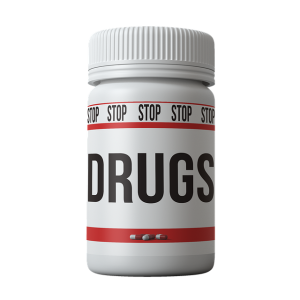Decoding Recovery: Neuroscience Insights into Overcoming Addiction
The Science of Addiction Recovery delves into how addiction reshapes brain circuits, particularly those governing reward, motivation, and memory. It emphasizes the significant role neurobiology plays in substance use disorders (SUDs), highlighting geneti…….

The Science of Addiction Recovery delves into how addiction reshapes brain circuits, particularly those governing reward, motivation, and memory. It emphasizes the significant role neurobiology plays in substance use disorders (SUDs), highlighting genetic markers associated with a higher risk of SUDs due to their influence on neurotransmitters like dopamine and serotonin. The interplay between these genetic factors and environmental influences is crucial in understanding addiction's development. The article discusses the importance of personalized treatment, leveraging genetic information to tailor recovery strategies, which can potentially improve rehabilitation success rates. It also covers the impact of environmental factors on addiction, noting that recovery-supportive environments are vital for facilitating abstinence and offering treatment resources.
Chronic substance use alters the brain through neuroplasticity, leading to tolerance and intensified cravings. The Science of Addiction Recovery addresses this by employing therapies like cognitive-behavioral therapy and medications to counteract these changes and manage withdrawal symptoms. Detoxification is highlighted as a critical first step in the recovery process, ridding the body of substances and setting the stage for further treatment.
Medication-Assisted Treatment (MAT) emerges as a key component of addiction recovery, combining pharmacotherapy with counseling to effectively manage SUDs, similar to other chronic health conditions. MAT has been shown to improve patient outcomes, with higher retention rates and better clinical and employment outcomes compared to traditional treatment methods. The science of addiction recovery is continually evolving, with MAT leading the way in providing comprehensive care that addresses the biological, psychological, and social aspects of addiction. This scientifically-informed approach represents a significant advancement in effectively treating SUDs and promoting sustained recovery.
Exploring the complexities of addiction recovery through a scientific lens reveals a multifaceted process influenced by neurobiology, genetics, and environmental factors. This article delves into the various components that constitute the science of addiction recovery, offering a comprehensive overview of the latest research and treatment methodologies. From understanding the brain’s adaptation to substance use to the importance of medication-assisted treatment and the role of cognitive behavioral therapy, we’ll cover the critical aspects of healing that facilitate long-term recovery. Additionally, we’ll examine the impact of lifestyle choices, including exercise and nutrition, as well as the benefits of mindfulness practices. The journey to recovery is unique for each individual, and this article will also address how personalized medicine can tailor treatments to diverse needs. Join us as we navigate the intersection of science, health, and human experience in the realm of addiction recovery.
- Understanding Addiction: A Neurobiological Perspective
- The Role of Genetics in Substance Use Disorders
- The Impact of Environmental Factors on Addiction Development
- The Brain's Adaptation to Substance Use: Plasticity and Tolerance
- The Process of Detoxification: Clearing the Body of Toxins
- Medication-Assisted Treatment: A Scientific Approach to Recovery
Understanding Addiction: A Neurobiological Perspective
The journey of addiction recovery is deeply rooted in the intricate workings of the brain, a subject that stands at the intersection of biology, psychology, and behavioral science. From a neurobiological standpoint, addiction is characterized by long-lasting changes in the brain’s structure and function as a result of repeated substance use. These changes can be observed across various neural circuits, including those governing reward, motivation, and memory. The reward circuit, in particular, becomes dysregulated due to the presence of substances that overwhelm the brain’s natural reward system, leading to intense cravings and compulsive drug-seeking behaviors. Understanding these neurobiological underpinnings is pivotal in developing effective treatment strategies within the science of addiction recovery. Therapeutic approaches such as cognitive-behavioral therapy, contingency management, and medication-assisted treatment are informed by this knowledge, aiming to restore balance and normalcy to the affected neural pathways while addressing the psychological aspects of addiction. By leveraging neuroscience research, clinicians can tailor interventions to the individual’s unique brain chemistry, enhancing the likelihood of sustained recovery and long-term abstinence from substance use.
The Role of Genetics in Substance Use Disorders
Research into the science of addiction recovery has increasingly recognized the significant role genetics play in substance use disorders (SUDs). Studies have identified various genetic factors that can predispose individuals to increased risks of developing SUDs. For instance, certain variations in genes related to neurotransmitter systems—such as those affecting dopamine and serotonin—have been associated with the likelihood of substance abuse. These genetic predispositions interact with environmental influences, creating a complex interplay that can either mitigate or exacerbate the development of an addiction. Understanding these genetic underpinnings is crucial for personalized treatment approaches in addiction recovery. It enables healthcare providers to tailor interventions based on an individual’s genetic makeup, thereby enhancing the efficacy and tailoring of recovery strategies. The integration of genetics into the science of addiction recovery underscores a paradigm shift from one-size-fits-all treatments to more precise, patient-centered care, which holds promise for improved outcomes in the long-term management of SUDs.
The Impact of Environmental Factors on Addiction Development
The science of addiction recovery recognizes that environmental factors play a significant role in the development and progression of substance use disorders. These factors encompass a broad spectrum, including social, physical, and psychological elements that can influence an individual’s vulnerability to addiction. For instance, exposure to environments where drug use is normalized or readily accessible increases the likelihood of initiating substance use. Conversely, supportive settings that promote abstinence-based behaviors and offer access to resources for treatment can facilitate recovery.
Studies in neuroscience have further elucidated how environmental cues can trigger neural pathways associated with drug-seeking behaviors. The interplay between genetics and environment is particularly pivotal; certain individuals may be predisposed to addiction due to genetic factors, but the manifestation of this potential is often triggered or shaped by environmental exposures. Understanding these dynamics is crucial for developing targeted interventions that address the unique circumstances of each person in recovery. By leveraging the science of addiction recovery, clinicians can create personalized treatment plans that effectively mitigate the adverse effects of environmental factors on the recovery process.
The Brain's Adaptation to Substance Use: Plasticity and Tolerance
The brain’s response to chronic substance use is a complex interplay of adaptation and change, a process deeply rooted in neuroplasticity and tolerance. Neuroplasticity refers to the brain’s ability to reorganize itself by forming new neural connections throughout life. In the context of addiction, this means that the brain adapts to the presence of substances by altering its structure and function. These changes can enhance the synaptic connections involved in reward processing, leading to increased cravings and compulsive drug-seeking behavior. Over time, the repeated exposure to substances reduces the brain’s sensitivity to them, a phenomenon known as tolerance. This necessitates higher doses to achieve the same effect, further driving the cycle of addiction. The science of addiction recovery addresses these neural adaptations by employing therapeutic strategies that aim to restore balance and normalcy in brain function. Recovery interventions often involve cognitive-behavioral therapies, which help modify harmful patterns of thought and behavior associated with substance use. Additionally, medications can be crucial in managing withdrawal symptoms and mitigating cravings, thereby supporting the brain’s recovery from the physiological changes brought about by prolonged substance exposure. Understanding these mechanisms is pivotal in developing effective treatments that facilitate the long-term recovery process, offering hope to those affected by addiction.
The Process of Detoxification: Clearing the Body of Toxins
The process of detoxification is a foundational step in the science of addiction recovery, serving as the initial phase where the body is cleansed of toxins accumulated due to substance use. This biological purging is critical for setting the stage for subsequent therapeutic interventions and long-term wellness. The detox process involves managing withdrawal symptoms, which can range from mild to severe depending on the substances involved and the individual’s physiological response. Medical professionals often employ a combination of medications and supportive care to alleviate discomfort and reduce the risk of relapse during this sensitive period. As the body begins to free itself from the chemical hold of addictive substances, metabolic functions recover, and individuals start to regain a sense of control and physical stability, which is pivotal for engaging in further recovery strategies. The science of addiction recovery recognizes detoxification as a highly individualized experience, with tailored protocols designed to address the unique needs of each patient, thereby optimizing the chances for successful recovery outcomes.
Medication-Assisted Treatment: A Scientific Approach to Recovery
Medication-Assisted Treatment (MAT) represents a scientifically grounded approach to addiction recovery, integrating medications, counseling, and other support services to manage substance use disorders effectively. This method recognizes that chronic relapsing conditions like addiction can be treated similarly to other chronic diseases. MAT employs medications to normalize brain chemistry, block the euphoric effects of opioids, relieve withdrawal symptoms, and reduce drug cravings. For instance, medications such as methadone, buprenorphine, and naltrexone are commonly used in the treatment of opioid addiction. These medications work synergistically with behavioral therapies to offer a comprehensive recovery strategy that addresses the biological, psychological, and social aspects of the condition. The science of addiction recovery is continuously evolving, with ongoing research further validating the efficacy of MAT. Studies consistently show that individuals who engage in MAT are more likely to remain in treatment, have fewer negative outcomes, and experience improved clinical and employment outcomes compared to those who receive neither medication nor counseling. This evidence-based approach underscores a critical shift in how society perceives and treats addiction, emphasizing the potential for recovery and long-term health stabilization through scientifically sound interventions.
Recovering from addiction is a complex and multifaceted journey that transcends mere cessation of substance use. It encompasses a profound understanding of the neurobiological underpinnings, acknowledges the influence of genetics and environment, and addresses the brain’s adaptive responses to substances. The process of detoxification is a critical first step in ridding the body of toxic substances, while medication-assisted treatment offers a scientifically grounded strategy to aid in this recovery. Through these evidence-based approaches, the science of addiction recovery offers hope and a path forward for individuals seeking to reclaim their health and well-being.









